- Market-Inspector.co.uk
- B2B Marketing Journey Statistics
B2B Customer Journey Statistics

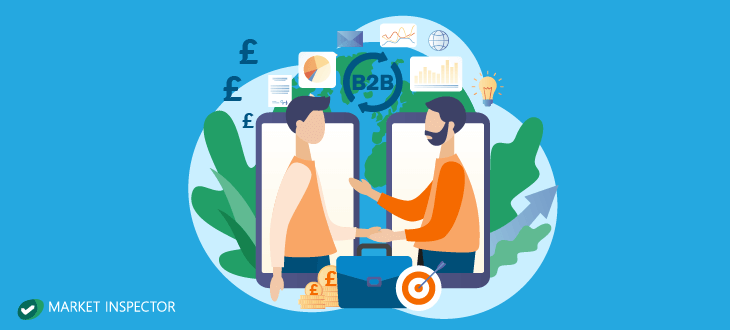
The B2B landscape is undergoing a significant transformation in today's digital age. Gone are the days of solely relying on traditional sales tactics. Business customers are increasingly tech-savvy and conduct thorough online research before purchasing. Understanding these informed customers' digital journeys is crucial to staying ahead of the curve and effectively targeting them.
In this article, we’ll help you discover key B2B customer journey statistics, shedding light on how business customers discover, evaluate, and ultimately decide on solutions. By leveraging these data-driven insights, you can refine your marketing and sales strategies to optimise each stage of the buyer's journey, ultimately converting prospects into loyal customers.
The statistics presented here will delve into various aspects of the B2B customer journey. These include how customers discover new products, the information they seek during the evaluation process, and the factors influencing their final decisions. We'll also explore the post-purchase stage, highlighting its importance in fostering customer loyalty and reducing churn rates.
- Key Statistics
- The evolving B2B landscape
- Stages of the B2B customer journey
- The rise of AI in the B2B customer journey
- Awareness stage statistics: How B2B customers discover you
- Consideration stage statistics: Evaluating potential solutions
- Decision stage statistics: Sealing the deal
- Post-purchase stage: Building lasting customer relationships
- Key takeaways and actionable insights
Key statistics
- 90% of B2B customers initiate their journey with an online search.
- 80% of B2B customers rely on search engines.
- 70% of B2B customers consume content.
- 55% of B2B customers still find industry publications valuable.
- 92% of B2B customers consider online reviews.
- 53% of B2B customers value case studies.
- 65% of B2B customers request product demos.
- 65% of B2B customers value product information, reviews and a user-friendly experience over the price.
- 60 - 70% of buyers consider user reviews and others’ experiences to be the most influential.
- 70% of B2B buyers find free trials/demos valuable during the decision stage.
- 81% of B2B shoppers worldwide complete the entire purchase process, from inspiration to purchase, as quickly as possible.
- B2B mobile ordering has increased by 250% since the COVID-19 pandemic.
- Buyers who are given a self-guided buying journey are 147% more likely to purchase.
- 80% of B2B customers experience a similar purchase experience as B2C buyers.
- B2B companies that offer a customised eCommerce experience tend to outsell their competitors by 30%.
The evolving B2B landscape
The traditional B2B landscape, characterised by face-to-face interactions and lengthy sales cycles, is rapidly evolving. The digital revolution has empowered business customers, placing them firmly in the driver's seat of the purchasing process.
Today, a staggering 90% of B2B customers initiate their journey with an online search. This highlights the critical role of digital channels in influencing B2B buying decisions. Understanding how customers navigate the online world and the information they seek during their research is essential for B2B businesses to develop effective marketing and sales strategies.
Stages of the B2B customer journey
The B2B customer journey can be broadly divided into four distinct stages: awareness, consideration, decision, and post-purchase. Each stage presents unique opportunities and challenges for B2B businesses to engage with potential customers.
-
Awareness stage: This initial phase focuses on making customers aware of your brand and the problems your solutions address. Here, customers actively research their needs and identify potential vendors.
-
Consideration stage: Once aware of available options, customers delve deeper into specific solutions. They compare features, pricing, and vendor reputations to shortlist vendors who best meet their requirements.
-
Decision stage: At this point, customers have narrowed their options and are ready to decide. They may request demos, negotiate contracts, and seek social proof (e.g., customer testimonials) to solidify their choice.
- Post-purchase stage: The journey doesn't end with the sale. This stage focuses on building customer satisfaction and loyalty. Businesses aim to ensure successful product adoption, provide ongoing support, and encourage repeat business.
The rise of AI in the B2B customer journey
Before we look more closely at the B2B buying journey, it’s important to mention the impact of Artificial intelligence (AI). AI is rapidly transforming the B2B customer journey, offering businesses new tools and capabilities to optimise interactions and enhance buyer experiences.
Here's how AI is impacting different stages of the journey:
-
Enhanced awareness
AI-powered marketing automation can personalise content recommendations and targeted advertising based on user behaviour and interests. This allows for more relevant messaging, increasing the likelihood of capturing buyer attention at the awareness stage.
-
Self-service options
Buyers who are given a self-guided buying journey are 147% more likely to purchase, suggesting that AI-powered tools that facilitate self-service can significantly boost sales.
-
Mobile sales
B2B mobile ordering has increased by 250% since the COVID-19 pandemic, underscoring the growing importance of mobile-friendly and AI-enhanced platforms.
-
Smarter consideration
AI-powered chatbots can provide 24/7 customer support, answer basic inquiries, and qualify leads during the consideration stage. This frees up sales reps to focus on more complex interactions with qualified buyers.
-
Data-driven decisions
AI can analyse vast amounts of customer data to identify buying patterns and predict future behaviour. B2B companies that offer a customised experience tend to outsell their competitors by 30%, highlighting the potential for AI to drive personalisation and improve sales performance.
-
Improved post-purchase support:
AI-powered chatbots can offer ongoing support after purchase, answer product-related questions, and troubleshoot common issues. This improves customer satisfaction and reduces the burden on human support teams.
However, it's important to remember that AI is a tool, not a replacement for human interaction. Building trust and fostering long-term relationships with B2B buyers still require personalised communication and a deep understanding of their specific needs.
Awareness stage statistics: How B2B customers discover you
The awareness stage is the foundation of the B2B customer journey. Here's where you capture the attention of potential customers and establish yourself as a thought leader in your industry - but how exactly do B2B customers discover new products and services?
-
Search engines reign supreme:
Statistics indicate that 80% of B2B customers rely on search engines to find information about potential solutions. This emphasises the importance of optimising your website and content for relevant keywords to ensure high search engine visibility.
-
Content is king:
70% of B2B customers consume content during the awareness stage. This highlights the power of content marketing in attracting and educating potential customers. Develop informative blog posts, white papers, and industry reports that address your target audience's pain points and showcase your expertise.
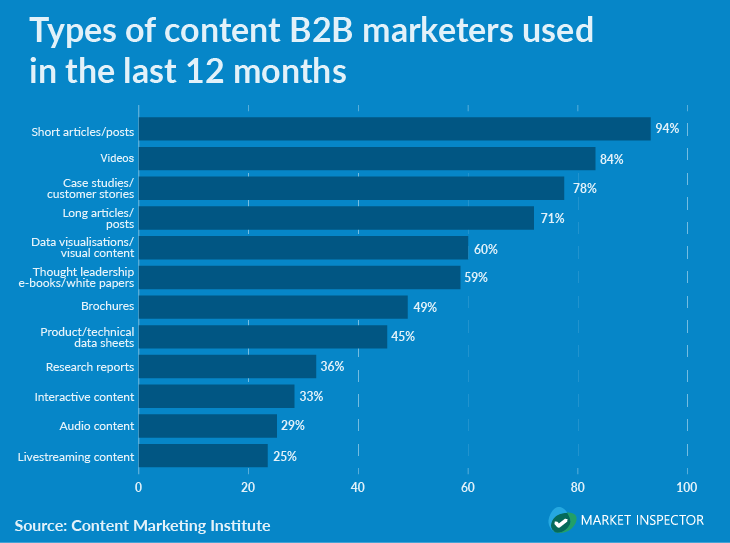
-
Industry publications still hold value:
Don't underestimate the influence of traditional media; 55% of B2B customers still find industry publications valuable sources of information during the awareness stage. Consider contributing thought leadership articles or participating in relevant industry events to increase brand awareness within your target market.
Consideration stage statistics: Evaluating potential solutions
The consideration stage is where B2B customers move from general awareness to actively researching specific solutions. Here, they assess different options and compare features to identify the best fit for their needs. Understanding how customers gather information during this crucial stage is vital for B2B businesses to position their offerings effectively.
-
Online reviews hold sway:
92% of B2B customers consider online reviews when evaluating potential solutions. This highlights the importance of cultivating positive customer reviews and testimonials to build trust and credibility with potential customers.
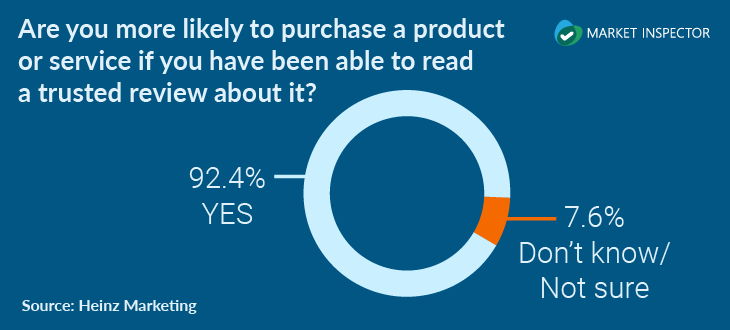
-
Case studies showcase value:
53% of B2B customers value case studies that demonstrate how similar companies have benefited from a particular solution. Develop compelling case studies showcasing successful customer implementations to illustrate your product or service's tangible benefits.
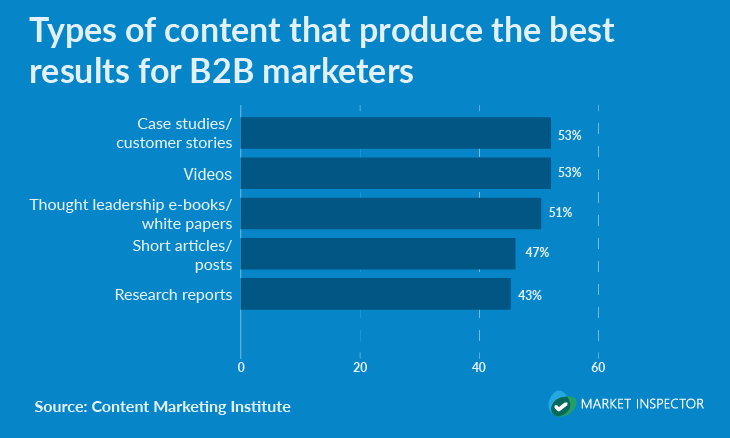
-
Demos provide hands-on experience:
65% of B2B customers request product demos during the consideration stage. Offering clear and informative demos allows customers to experience your product firsthand and address any lingering questions they have.
-
Pricing should be transparent:
A recent survey of B2B buyers revealed that 54% of those asked said they wanted to find pricing information on their own. This is one of the first things many buyers look for, with only 29% stating they look for pricing at a later point (after a demo, for example).
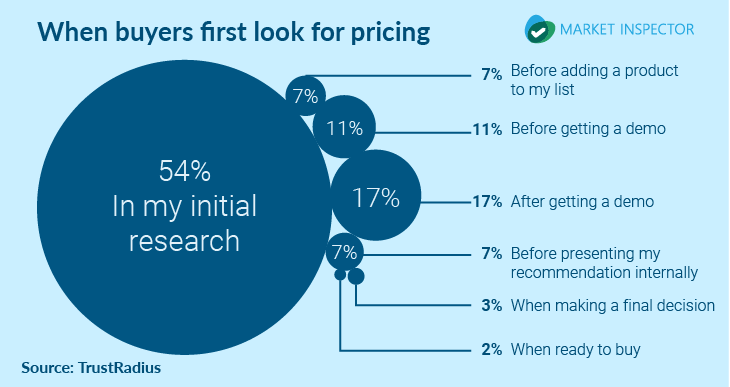
-
Efficiency is a primary driver:
For those selling services, like marketing or recruitment, a recent survey revealed that 47% of B2B buyers are increasingly outsourcing to external providers to enhance their own efficiency. This means that more buyers are looking for specialised skills and knowledge to add to their business and are willing to pay for these services rather than trying to adopt them in-house. Therefore, promoting the efficiency of your products and services can have a great impact during the consideration stage.
Decision stage statistics: Sealing the deal
The decision stage is where B2B customers have narrowed down their options and are ready to make a final purchase decision. Here, the competition intensifies as customers weigh the pros and cons of each remaining solution. Understanding the factors that influence their final choice empowers B2B businesses to tailor their closing arguments for maximum impact.
-
Price is a major factor, but not everything:
While price is undeniably significant, it's not the sole deciding factor - 65% of B2B customers value factors such as product information, reviews and a user-friendly experience over the price.
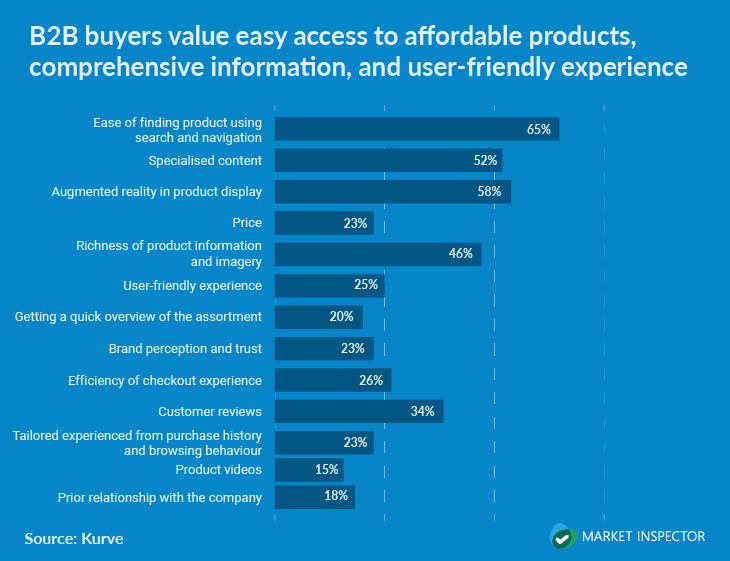
-
Social proof matters:
60 - 70% of buyers consider user reviews and others' experiences to be the most influential factors in their product purchasing decisions. However, research conducted by TrustRadius suggests that these areas are not the most prominent in vendors' marketing strategies.
Leveraging social proof elements like positive customer reviews and success stories can demonstrate your solution's value and build buyer confidence.
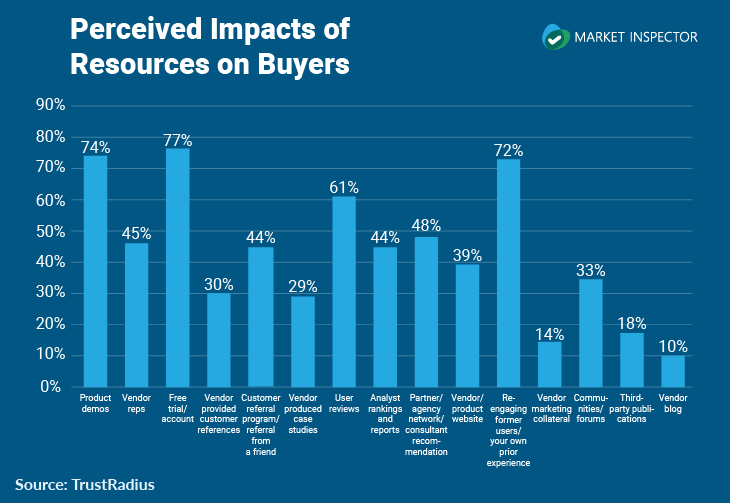
-
Free trials can sweeten the deal:
Offering free trials allows customers to experience your product firsthand and mitigate any purchase risks. In fact, 70% of B2B buyers find free trials/demos valuable during the decision stage (given the product is applicable). Consider implementing well-designed free trials to showcase your product's capabilities and convert hesitant customers into loyal customers.
Post-purchase stage: Building lasting customer relationships
The B2B customer journey continues after the sale. The post-purchase stage fosters customer satisfaction, builds loyalty, and reduces churn. Here, businesses ensure successful product adoption, provide ongoing support and nurture long-term client relationships.
Customer success programs drive retention
B2B companies with dedicated customer success programs report higher customer retention rates and up to 8% higher revenue growth. Therefore, investing in customer success programs that provide ongoing support, training, and account management can significantly improve customer satisfaction and loyalty.
The power of proactive engagement
A study by Accenture Interactive found that 80% of B2B buyers have switched from suppliers that are unable to align their services with buyer expectations. This indicates that poor service and support can indeed lead to customer churn.
Proactively engaging with your customers after the sale to address any questions or concerns can help improve customer service, demonstrate your commitment to their success and strengthen your long-term relationships.
Key takeaways and actionable insights
The data presented in this article paints a clear picture of the modern B2B customer journey.
Here are some key takeaways to remember:
-
Digital is king: B2B buyers rely heavily on online resources throughout their journey. Optimise your website and content for search engines and prioritise content marketing to attract and educate potential customers.
-
AI can increase your reach: As more consumers look for personalised, self-service options, AI tools can greatly increase your offering and improve your buyer's journey.
-
Content is crucial: Informative content like blog posts, white papers, and industry reports positions you as a thought leader and allows buyers to learn about your solutions during the awareness stage.
-
Build trust with reviews and case studies: Positive customer reviews, testimonials, and case studies showcasing successful implementations build trust and credibility.
-
Focus on value, not just price: While price is a factor, B2B buyers prioritise features, vendor reputation, and overall value proposition. Highlight the unique benefits your solution offers throughout the sales cycle.
-
Social proof matters: Leverage social proof elements like customer success stories and positive reviews to build buyer confidence during the decision stage. Consider offering free trials to mitigate purchase risks further.
- Post-purchase matters: Pay attention to your customers after the sale. Invest in customer success programs and prioritise ongoing support to ensure successful product adoption and reduce churn.
Understanding the B2B customer journey through data-driven insights is crucial for B2B businesses looking to optimise their marketing and sales strategies. By catering to buyers' needs and preferences at each stage of the journey, you can effectively attract prospects, convert them into loyal customers, and ultimately achieve sustainable business growth. Utilise the statistics and actionable insights presented here to refine your approach and navigate the ever-evolving B2B landscape confidently.

Becky is an experienced content writer at Market Inspector with a background in broadcasting and journalism. Her passion for research and keen eye for detail means she always brings the latest and most reliable content to our readers. Key focus areas for Becky include business trends and statistics, renewable technology and sustainability. Her content has been featured on sites including The Next Web, Earth911 and the Daily Mail.
We strive to connect our customers with the right product and supplier. Would you like to be part of Market Inspector?

- B2B customer journey statistics
- Key Statistics
- The evolving B2B landscape
- Stages of the B2B customer journey
- The rise of AI in the B2B customer journey
- Awareness stage statistics: How B2B customers discover you
- Consideration stage statistics: Evaluating potential solutions
- Decision stage statistics: Sealing the deal
- Post-purchase stage: Building lasting customer relationships
- Key takeaways and actionable insights




